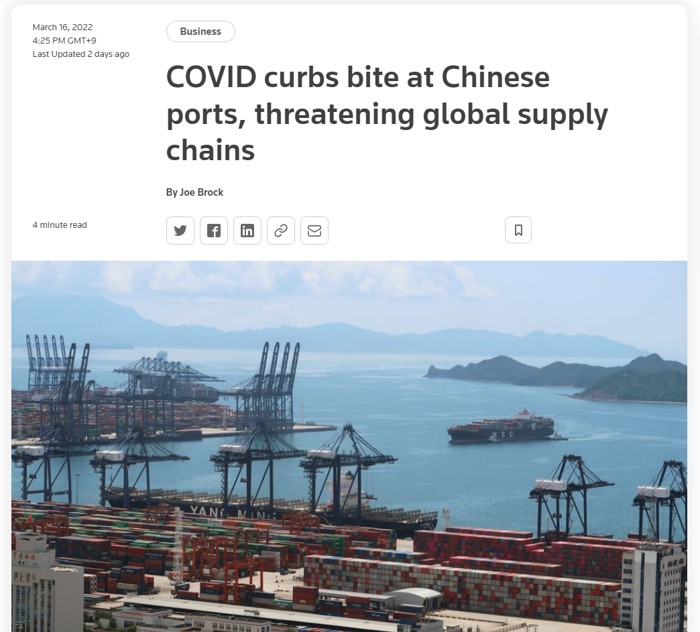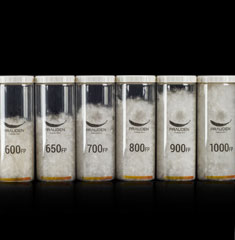
Stability of Supply Gains Greater Importance amid COVID-19
2022-03-29
Over the past three years since the first COVID-19 outbreak, the global pandemic has brought tremendous changes to our lives, in what is described by the newly coined term, “post-COVID-19.” The textile and garment industry is no exception. In this article, we will take a look at how the global textile and garment industry has been affected by the pandemic and will get insights to prepare better planning for the upcoming season.
Growing volatility of down supply volume and prices
Poultry production is estimated to have been cut by 30% year on year in China, the world’s largest supplier of down, as COVID-19 has presumably forced small farms to closure as they cannot sustain breeding during lockdowns. Reduced supply caused price increases across the board and many failed to get needed supply volume delivered in time. Such shortages are not likely to recover any time soon since decreased breeding cannot expand in a short period of time.
Increasing instability of clothing manufacturers
The apparel industry in Vietnam, the world’s largest apparel producer, is suffering a harsh blow due to lockdowns. Continued quarantine measures on local communities and factories caused disruptions in material supplies and work schedules. Manufacturers lost sales opportunities as they could not bring finished products to markets in time and materials left unused at planned manufacturing sites built up as long-term inventories.
Such volatility raised costs of materials and labor, and tight schedules, and consequently frequent schedule changes and difference in production skills, contributed to deteriorated quality of finished products.

<news article about logistics crisis>
source: REUTERS
Changing price structure
Unstable and unpredictable industrial cycles today led to an exponential increase in logistics demand and imbalance in freight volume among countries. These are the combined result of various factors that cannot be resolved overnight, and players of each industry will feel the pressure to raise prices in order to compensate for losses caused by declining consumption and volatility, and become more aggressive to find new customers.
Changes in consumption patterns
Apparel brands witnessed sales recovery in 2021 compared to the year before, but in different ways. Traditional clothing brands led the growth track as opposed to previously dominant SPA brands. The focus of the apparel industry shifted from “faster, cheaper and more” to ESG management. Recent criticisms against cotton produced in Xinjiang, China testifies to the trend.
Amid growing attention to eco-friendliness and sustainability, international certifications based on sophisticated mechanism are beginning to gain recognition from consumers and industries. These certifications are increasingly posing as large entry barriers for those businesses that have yet to reach certain scale and levels since costs for building systems for, and acquiring and maintaining certifications are be a burden to businesses.
It is more critical than ever to keep track of the fast-changing international environment and consumer trends, in order to ensure stable sourcing and business planning. In that regard, the following is recommended as guidelines for your better decision making.
1. Choose partners which can assure supply stability in terms of volume, transportation, and scale. You can lower risks by working with sizable companies which have manufacturing and logistics operations in several, not just one, countries and are able to promptly respond to fluctuations in the global marketplace.
2. Move fast to acquire information and act when variables arise. Businesses are facing much greater variables than before the pandemic, such as schedules, transportation routes, volumes, and absence of persons in charge. When confronted with unexpected situations, you should be able to come up with plan B.
3. Get ready for new supply chains. As was seen in the case of cotton production in Xinjiang, China, unsustainable materials and manufacturing methods entail risks that they cannot keep up with the trend. Companies should adapt themselves to the trends of sustainability management and supply chain systems, such as certifications, national standards, and ESG marketing.
At Pan-Pacific, PRAUDEN and SynCloud have already recognized and prepared for these risks and hence we will prove to be the most reliable partners you can count on in the insulation materials sector. We have manufacturing and logistics operations in China, Vietnam, Myanmar, and Korea, and teams of experts monitor trends in the global marketplace day in day out. We have the most number of international certifications in the industry, which serves as the reliable assurance of sustainability in both materials and production.
By Marketing Department, Sang-do Lee


















